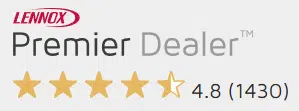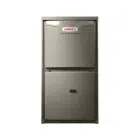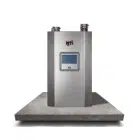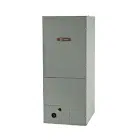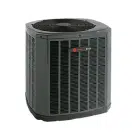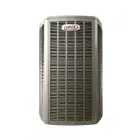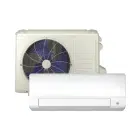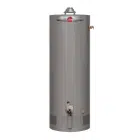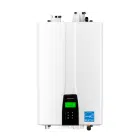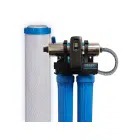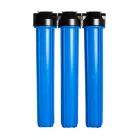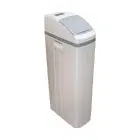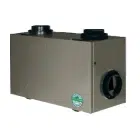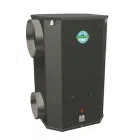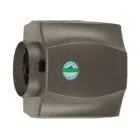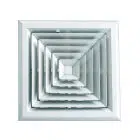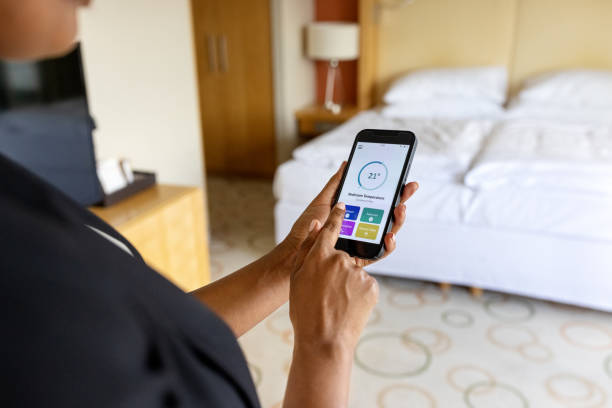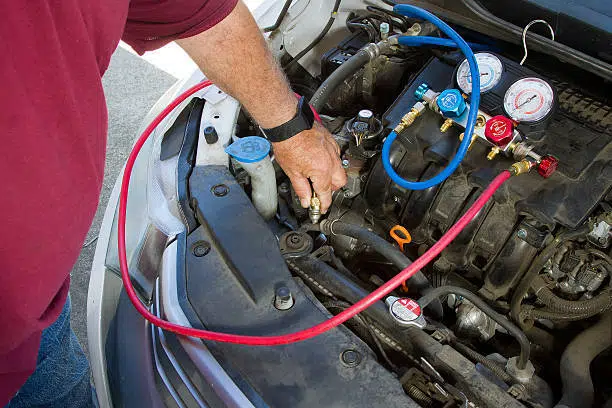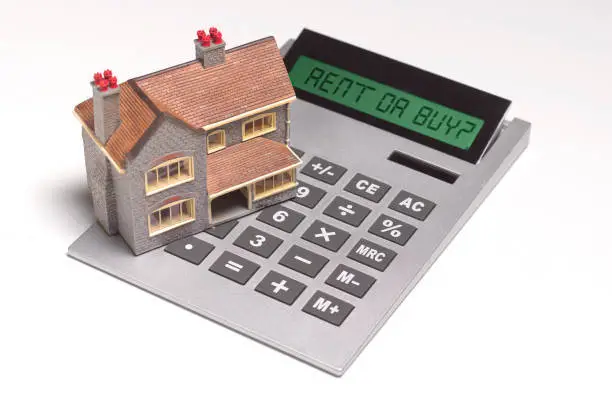
Table of Contents
Hey there! So, you’re thinking about whether to rent or buy an air conditioner? It’s a pretty big decision, especially considering the hot summers and chilly winters we get here in Canada. Whether you’re sweltering in July or just trying to stay comfy year-round, having a reliable AC is a must. But should you rent or own? Let’s dive into the nitty-gritty of both options to help you make the best choice.
Overview of Air Conditioner Options
Before we get into the pros and cons, let’s talk about the types of air conditioners you might consider. There are several kinds, each with its own perks:
Central Air Conditioners
Central air conditioners in Canada are designed to cool your entire home through a system of ducts. Here’s how they work and their benefits:
Central AC systems use a network of ducts to distribute cooled air throughout your home. The system includes an outdoor unit that houses the compressor and condenser, and an indoor unit with the evaporator coils. A thermostat controls the system, allowing you to set your desired temperature.
Benefits:
- Whole-House Cooling: Central ACs provide consistent, even cooling throughout your entire home, making them ideal for larger spaces.
- Quiet Operation: Because the noisy parts of the system are located outside, central air conditioners are typically quieter than other types.
- Improved Air Quality: These systems can also filter and dehumidify the air, improving indoor air quality.
Portable Air Conditioners
Portable air conditioners are standalone units that can be moved from room to room as needed.
Portable ACs extract hot air from the room and expel it outside through a hose connected to a window or vent. They also dehumidify the air, making it feel cooler.
Benefits:
- Flexibility: You can move the unit to whichever room you’re using, providing cooling where you need it most.
- Easy Installation: These units are easy to set up and don’t require permanent installation.
- Compact Size: Portable air conditioners are generally smaller and can be stored away when not in use.
Window Air Conditioners
Window air conditioners are compact units that fit into a window, cooling a single room at a time.
These units are installed in a window or a hole in an exterior wall. They draw in warm air, cool it, and then expel the cooled air back into the room while venting the hot air outside.
Benefits:
- Cost-Effective: Window units are typically less expensive than central or split systems.
- Energy Efficiency: They can be very efficient for cooling small spaces or individual rooms.
- Easy to Remove: Window ACs can be easily removed or replaced, making them a flexible cooling option.
Split Air Conditioners
Split air conditioners, also known as ductless mini-splits, consist of an indoor unit mounted on the wall and an outdoor compressor.
The indoor unit blows cool air into the room, while the outdoor unit expels the heat. These units are connected by refrigerant lines rather than ducts.
Benefits:
- No Ducts Needed: Split systems are ideal for homes without ductwork.
- Zoned Cooling: You can install multiple indoor units in different rooms, allowing for independent temperature control in each zone.
- Energy Efficiency: These units are often more energy-efficient than central air systems because they don’t lose energy through ducts.
Check out the 7 best ductless mini-split air conditioners in 2024 in our comprehensive buying guide via the link below.
https://thehvacservice.ca/best-7-ductless-mini-split-air-conditioners-in-2024/
Now that you have a better understanding of the different types of air conditioners, let’s dive into the pros and cons of renting vs. owning each type. Both renting and owning have their advantages and disadvantages, so let’s break it down.
Pros and Cons of Owning New Air Conditioners

Owning an air conditioner can be a great investment, but it’s important to weigh the benefits and drawbacks. Here’s a closer look at what you can expect if you decide to buy your own AC unit.
Pros
- Long-Term Cost Savings While buying an air conditioner requires a bigger upfront investment, it can save you money in the long run. You won’t have monthly rental fees, and the unit becomes an asset.
- Full Control Over the Unit Owning your AC means you can choose the exact model you want, with all the features you need. You can also customize and upgrade it as you see fit.
- Potential for Higher Quality and Efficiency When you own your AC, you can invest in a high-quality, energy-efficient unit that will save you money on your energy bills and provide better performance.
- Increases Property Value Installing a permanent air conditioning system can increase the value of your home. It’s a desirable feature for potential buyers if you ever decide to sell.
Cons
- High Upfront Costs The biggest downside to owning an AC is the initial cost. Purchasing a unit, especially a high-quality one, can be expensive.
- Responsibility for Maintenance and Repairs When you own your AC, all maintenance and repair costs are on you. This can be a hassle and an added expense if something goes wrong.
- Depreciation Over Time Like any appliance, air conditioners depreciate over time. They may need replacing after several years, so your initial investment will eventually lose value.
- Possible Obsolescence with Technological Advancements Technology is always advancing, and newer, more efficient models are always coming out. Your once top-of-the-line AC could become outdated, making you want to upgrade sooner than you planned.
In conclusion, owning a new air conditioner gives you complete control and can save you money in the long term, but it comes with higher upfront costs and the responsibility of maintenance and repairs. Weigh these pros and cons carefully to decide if owning is the right choice for you.
Pros and Cons of Renting Air Conditioners
Rent an air conditioner can be a convenient and cost-effective solution, but it’s essential to understand both the advantages and disadvantages before making a decision. Let’s explore the pros and cons of renting your air conditioner.
Pros
- Lower Upfront Costs Renting an air conditioner means you don’t have to shell out a ton of money upfront. This can be a huge relief if you’re tight on cash or have other financial priorities.
- Maintenance and Repair Services Included Most rental agreements include maintenance and repair services. So, if your AC breaks down in the middle of a heatwave, you won’t be stuck paying for costly repairs. The rental company takes care of it for you.
- Flexibility in Upgrades and Changes Renting gives you the flexibility to upgrade or change your unit as your needs change. If you move to a bigger place or need a more efficient unit, it’s usually easier to switch when you’re renting.
- No Long-Term Commitment If you’re renting your home or not planning to stay in one place for long, renting an AC means you don’t have to worry about moving it with you. You can simply end your rental agreement and move on.
Renting your air conditioner can be a smart choice if you need flexibility and lower initial costs, especially if you anticipate changes in your living situation.
Cons
- Higher Long-Term Costs While renting is cheaper upfront, it can end up costing more over the long haul. Monthly rental fees add up, and you might end up paying more than if you had bought the unit outright.
- Limited Customization Rental units are often standard models and may not have all the bells and whistles you might want. You’re limited to what the rental company offers.
- Rental Agreement Restrictions Rental agreements can come with a lot of fine print. You might have restrictions on how you can use the unit or face penalties for early termination.
- Potential for Lower Quality Units Some rental companies might provide older or lower-quality units that aren’t as efficient or effective as newer models you could buy.
Despite these potential drawbacks, rent an air conditioner can still be a viable option, especially if you’re not ready to commit to a long-term purchase or if you prefer having maintenance included.
In summary, renting your air conditioner offers significant flexibility and lower upfront costs but can lead to higher long-term expenses and limited customization. Carefully consider your needs and circumstances to determine if renting is the right choice for you.
Steps to Apply for the Ontario Rebates
Aspect | Renting Air Conditioners | Owning Air Conditioners |
|---|---|---|
Upfront Costs
| Lower upfront costs | High upfront costs |
Monthly Costs | Ongoing rental fees | No monthly rental fees |
Maintenance and Repairs
| Included in rental agreement | Responsibility of the owner |
Flexibility | Easy to upgrade or change units | Limited by the initial purchase |
Customization | Limited customization options | Full control over model and features |
Quality and Efficiency | Potential for lower quality units | Opportunity to invest in high-quality, energy-efficient units |
Property Value | No impact on property value | Increases property value |
Commitment | No long-term commitment | Long-term commitment |
Technology Advancements | Easier to stay up-to-date with the latest models | Possible obsolescence over time |
Factors to Consider When Choosing Between Renting and Owning
So, how do you decide? Here are some key factors to consider:
Budget and Financial Considerations: Think about your immediate budget and long-term financial situation. Can you afford the upfront cost of buying, or is a monthly rental fee more manageable?
Duration of Stay in the Property: Are you renting your home or do you plan to move soon? Renting might make more sense. If you’re settled and plan to stay for a while, buying could be a better investment.
Climate and Usage Patterns: How often and how intensely will you use your AC? If you need it running all summer long, investing in a high-quality, efficient unit might be worth it.
Energy Efficiency and Environmental Impact: Consider the energy efficiency of the units you’re looking at. Owning an energy-efficient model can save you money and reduce your environmental footprint.
Personal Preferences and Lifestyle: Do you like having the latest tech and features? Owning might suit you better. If you prefer not to deal with maintenance, renting could be the way to go.
Conclusion
Deciding whether to rent or own an air conditioner ultimately depends on your individual circumstances and preferences. Renting offers lower upfront costs, included maintenance, and flexibility, making it a great choice for those who are renting their home, on a tight budget, or need a temporary solution. On the other hand, owning an air conditioner involves a higher initial investment but provides long-term cost savings, full control over the unit, and potential increases in property value. It’s a solid option for homeowners planning to stay put for several years and who prioritize quality and efficiency.
For those seeking the best of both worlds, HVAC Service Solutions is here to help. Whether you’re looking to purchase a top-notch air conditioning system or prefer the flexibility and convenience of renting, we offer a range of high-quality units and competitive rental terms tailored to your needs. Contact us today to speak with our experts, explore your options, and find the perfect cooling solution for your home or business.
Frequent Asked Questions
What are the main benefits of renting an air conditioner?
Renting an air conditioner offers several key benefits that make it an attractive option for many people. First, the lower upfront costs mean you don’t have to spend a large sum of money at once, which can be particularly helpful if you’re on a tight budget. Additionally, most rental agreements include maintenance and repair services. This means that if your AC breaks down, the rental company will take care of the repairs, saving you from unexpected expenses. Renting also provides flexibility; you can upgrade or change your unit as your needs evolve without worrying about selling or disposing of the old one. This is especially beneficial if you move frequently or your cooling requirements change over time. Another significant advantage is that renting doesn’t require a long-term commitment, making it easier to adapt to life changes. For renters, this can be particularly convenient as you don’t have to worry about transporting a bulky air conditioner when you move. Finally, renting can allow you to test different types of air conditioners to find the one that best suits your needs before making a long-term investment.
What are the main benefits of owning an air conditioner?
Owning an air conditioner has its own set of advantages that can make it a more appealing option for some individuals. One of the primary benefits is the potential for long-term cost savings. While the initial purchase price of an air conditioner can be high, you won’t have ongoing rental fees, which can add up over time. Owning also gives you full control over your unit. You can choose a model with the exact features you need, ensuring you get the best performance and energy efficiency. Furthermore, owning an air conditioner can allow you to invest in higher quality and more efficient units that can reduce your energy bills and provide better cooling. Another advantage is that a permanent air conditioning system can increase the value of your home. If you ever decide to sell, having a high-quality AC system can be a selling point. Additionally, you have the freedom to customize and upgrade your unit as you see fit, without any restrictions from a rental agreement. Over time, this can lead to improved comfort and efficiency in your home.
Which option is more cost-effective in the long run, renting or owning an air conditioner?
When considering the long-term cost-effectiveness of renting versus owning an air conditioner, several factors come into play. Initially, renting may seem more affordable due to the lower upfront costs. However, as time goes on, the cumulative rental fees can surpass the one-time purchase cost of an air conditioner. Owning your unit allows you to avoid these ongoing expenses. Additionally, owning provides the opportunity to invest in energy-efficient models that can reduce your monthly utility bills, further increasing long-term savings. Maintenance costs should also be considered; while renting typically includes these services, owning means you’ll need to budget for potential repairs and regular upkeep. However, many find that the freedom to choose high-quality, durable units when buying can offset these costs. Moreover, owning an air conditioner can add value to your property, making it a worthwhile investment if you plan to stay in your home for several years. Ultimately, while renting offers short-term financial relief, owning an air conditioner tends to be more cost-effective in the long run, especially if you stay in one place for an extended period.
What should I consider when deciding between renting and owning an air conditioner?
When deciding whether to rent or own an air conditioner, several important factors should be taken into account. First, assess your budget to determine what you can afford upfront versus over time. Renting requires lower initial costs but involves ongoing monthly fees, while owning involves a higher initial investment with no recurring rental payments. Consider your living situation and how long you plan to stay in your current home. If you’re renting or expect to move soon, renting an air conditioner might be more convenient. On the other hand, if you’re settled and plan to stay put for a while, owning could be more beneficial. Think about your willingness to handle maintenance and repairs. Owning an air conditioner means you’re responsible for these tasks, whereas rental agreements usually cover them. Also, evaluate the level of control and customization you desire. Owning allows you to choose specific models and features, while renting limits you to what the rental company offers. Finally, consider the potential impact on your property’s value. A permanent, high-quality air conditioning system can enhance your home’s marketability and value if you decide to sell in the future.
How much can I expect to pay upfront when buying a new air conditioner?
The upfront cost of buying a new air conditioner can vary widely depending on several factors, including the type of unit, its capacity, and any additional features. For a basic window air conditioner, prices can start as low as $150 to $300. Portable air conditioners are similarly priced, typically ranging from $200 to $600. For more comprehensive cooling, a ductless mini-split system can cost anywhere from $700 to $2,500 per unit, depending on the brand and features. Central air conditioning systems, which require installation of ductwork and more complex setup, are the most expensive, with prices ranging from $3,000 to $7,000 or more for a complete system, including installation. These prices can increase with higher efficiency models, larger capacities, or additional features like smart controls. It’s also important to factor in installation costs, which can vary based on the complexity of the job and local labor rates. While these upfront costs can be significant, owning a high-quality, energy-efficient air conditioner can provide long-term savings on your energy bills and maintenance costs.
What maintenance responsibilities do I have if I own an air conditioner?
If you own an air conditioner, you are responsible for its regular maintenance to ensure it runs efficiently and has a long lifespan. One of the primary tasks is cleaning or replacing the air filters every one to three months, depending on the type of filter and the amount of use. Dirty filters can reduce airflow and efficiency, leading to higher energy bills and potential damage to the unit. Additionally, you should regularly clean the coils and fins on the outdoor unit to prevent dirt and debris from obstructing airflow. Checking and clearing the condensate drain is also important to avoid water damage and potential mold growth. Periodically, you may need to inspect the refrigerant levels and have them topped off if necessary, which typically requires a professional. It’s also advisable to schedule annual professional maintenance to ensure all components are in good working order and to address any potential issues before they become major problems. Regular maintenance not only helps to keep your air conditioner running efficiently but can also prevent costly repairs and extend the lifespan of the unit.
Can renting an air conditioner help me stay up-to-date with the latest technology?
Yes, renting an air conditioner can help you stay up-to-date with the latest technology. Many rental companies frequently update their inventory to include newer, more energy-efficient models. This means that when you rent, you often have access to the latest features and advancements without the need for a large initial investment. For example, modern air conditioners come with smart technology, allowing you to control the unit remotely via a smartphone app, set schedules, and monitor energy usage. These features can provide added convenience and help you save on energy costs. Additionally, if a newer, more efficient model becomes available, rental agreements often allow you to upgrade your unit relatively easily. This flexibility ensures that you can benefit from the latest innovations in air conditioning technology without the hassle and expense of purchasing and installing a new unit every few years. Renting also allows you to try different models and features to find the one that best suits your needs before committing to a purchase.
Are there any restrictions with rental agreements for air conditioners?
Yes, rental agreements for air conditioners can come with various restrictions and conditions that you should be aware of before signing. One common restriction is the limitation on customization and modifications. Since the unit is not your property, you typically cannot alter or upgrade it without permission from the rental company. Additionally, there may be specific usage guidelines you must follow to avoid damage to the unit. Rental agreements often include clauses about regular maintenance, requiring you to ensure the unit is kept in good working condition, although major maintenance and repairs are usually covered by the rental company. Early termination of the rental agreement can also result in penalties or fees, so it’s important to understand the terms regarding contract length and conditions for ending the agreement. Some rental agreements may have limits on the geographic area where the unit can be used, which could be a consideration if you plan to move. Reading the fine print and asking questions before committing to a rental agreement can help you avoid unexpected issues and ensure that the rental terms meet your needs.
Does renting an air conditioner include installation services?
Most rental agreements for air conditioners do include installation services, which is one of the significant advantages of renting. When you rent an air conditioner, the rental company typically handles the delivery and installation of the unit, ensuring it is set up correctly and efficiently. This service can save you time and effort and helps to ensure that the unit operates at its best from the start. Professional installation also minimizes the risk of improper setup, which can lead to reduced efficiency, higher energy bills, or even damage to the unit. Additionally, if you move to a new home, many rental agreements include provisions for relocating the unit, so the rental company can handle the removal and reinstallation. This convenience can be particularly beneficial for renters or those who anticipate moving frequently. Always check the details of your rental agreement to confirm that installation services are included and to understand any potential additional costs or conditions associated with installation.
How do I decide which type of air conditioner to rent or buy?
Deciding which type of air conditioner to rent or buy depends on several factors, including the size of the space you need to cool, your budget, energy efficiency considerations, and any specific features you may
Share
